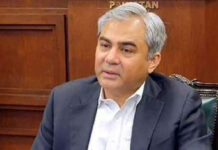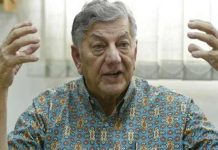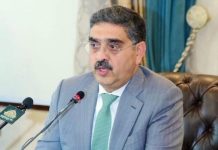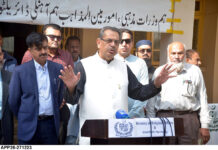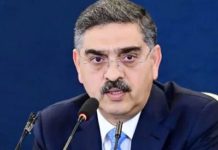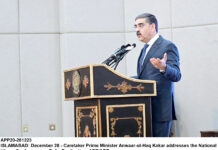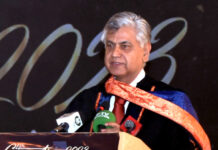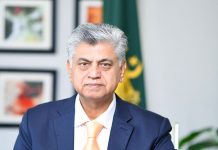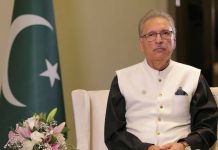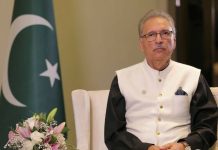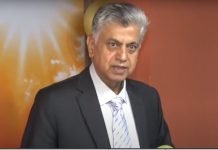
In a tweet, Babar bin Atta, the prime minister’s adviser on polio eradication, said the campaign, which commenced on April 22, was a five-day affair that had concluded as per schedule.
“… let me clearly state that National Polio Campaign was a 5 day affair. It started on Monday & Ended Yesterday. The LQAS (survey to check 95% optimum levels) has been stopped as we know the quality is not 95%. Why waste Government/Donor resources?” he wrote on Twitter.
The PM’s adviser further said that details of the campaign, including the number of children vaccinated and refusal cases, would be released later. Another official working on anti-polio efforts also presented a similar view in a talk with a local newspaper. “The nationwide campaign was scheduled to run for five days, starting on Monday and with Friday as the last catch-up day. That is how it panned out, so how can we say the immunisation drive was cancelled?”
He conceded that the April vaccination drive had been affected by the “pre-planned propaganda campaign in Peshawar” and the recent attacks on polio vaccinators.
In response to a question, he said these setbacks would not have any impact on future campaigns. “The schedule for the next vaccination campaign has not been decided yet. In any case, it would be after Ramazan and these issues will be resolved by then.”
A spokesperson for the Health Ministry also seconded the stance adopted by the PM’s adviser on polio eradication. “This vaccination campaign proceeded as per schedule. There was no cancellation, as clarified by the prime minister’s adviser.”
April was a violent month for the national polio campaign, with at least three people killed this week, and thousands of parents refusing to allow their children to be inoculated amid a deluge of anti-vaccine content on the social media.
The violence coincided with an outbreak of hysteria in cities across northwest Pakistan after rumours of children suffering from adverse reactions to a polio vaccine sparked panic. An official report later confirmed that a “pre-planned conspiracy” was responsible for the panic.
The incident fed festering suspicions about the vaccine campaign, with authorities saying dozens of polio workers were beaten, stoned, and harassed and one health clinic burned to the ground in the episode’s wake.
The controversy over the “cancellation” of the immunisation campaign was also driven by an advisory purportedly sent out to Provincial Emergency Operation Centres on Friday.
“The nationwide campaign was launched in all districts/areas of the country from April 22 and today is the last catch-up day in all districts except Tier 1 districts and SMT areas. After the Peshawar incident, the uncertain and threatening situation for the frontline polio workers has emerged and we need to save the programme from major damage,” reads the advisory issued by the National Emergency Operations Centre for Polio Eradication.
“It has therefore been unanimously decided by the national technical team and GPEI partners to call off the catch-up activities of April NID campaign in all provinces and areas of the country with immediate effect. Hence, no further vaccination or catch-up activity will be conducted in any area for this campaign.”
“Furthermore, as already communicated, no post-campaign evaluation will be conducted for this round. We will jointly come up with the strategy/action plan for future SIAs.”
Polio is endemic in only three countries globally – Pakistan, Afghanistan and Nigeria – although a relatively rare strain was also detected in Papua New Guinea last year.
Polio vaccination campaigns have faced stubborn resistance for years in Pakistan. Attacks by militants have also been frequent, with nearly 100 people killed in assaults targeting vaccine teams since 2012.
Despite the opposition, campaigners have reported progress with tens of millions of children vaccinated across the country along with a 96 percent drop in reported polio cases since 2014.
But as the country nears its goal of ridding polio from its territory, new headwinds have arisen amid a growing global movement against inoculation.
The anti-vax phenomenon has attracted adherents worldwide, fuelled by medically baseless claims and proliferated by the social media resulting in a resurgence of once-eradicated, highly-contagious diseases.
In recent months, social media in Pakistan has also been inundated with fake news reports and videos – garnering hundreds of thousands of views and shares in the last week alone – claiming numerous children have been killed by the polio vaccine.
Public health experts say the misinformation has inflamed already existing distrust of vaccine campaigns, resulting in a three-fold jump in refusals by parents to vaccinate their children in the last two years.
“Here people have little knowledge, so if they see a professor allegedly from the US or elsewhere who is against the vaccine, they are easily convinced,” Rana Safdar from Pakistan’s National Institute of Health told an international news agency a few days ago. “Now there is a pushback. We need to regain the momentum.”
Confronting violence:
Flanked by armed guards, polio workers fanned out in the slums of Islamabad after a bloody week of fatal attacks on health workers threatened to derail the on-going vaccination drive.
Undeterred health workers have continued to inoculate thousands of children – with or without security – while public health officials have argued with reluctant parents, pleading with them to vaccinate their children.
More than 250,000 health workers are involved in the campaign.
In a slum on the outskirts of Islamabad, parents cradled wailing youngsters as staff administered oral doses of the vaccine, while neighbours crowded around to watch as police scanned the surroundings.
Across the capital in an upscale apartment block, a health worker spent time convincing mothers and fathers who had earlier refused to allow their children to be vaccinated.
“What is pinching us is actually the fake or negative social media propaganda,” Dr Mohammad Asif Rahim, an assistant deputy commissioner in Islamabad, told the news agency, saying that thousands of parents each day were now refusing to participate in the polio campaign.
Polio vaccination campaigns have faced stubborn resistance for years in Pakistan. Opposition to myriad forms of inoculation skyrocketed after the CIA organised a fake vaccination drive to help track down al Qaeda leader Osama bin Laden in Abbottabad, where US forces later killed the militant leader in 2011.
Some Taliban and hardline religious figures have been known to fan rumours that vaccines contain ingredients forbidden in Islam, such as pork derivatives, or that can cause infertility as part of a conspiracy to reduce the population.

